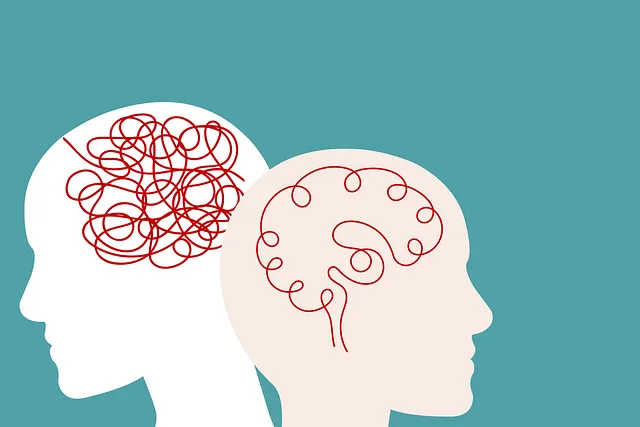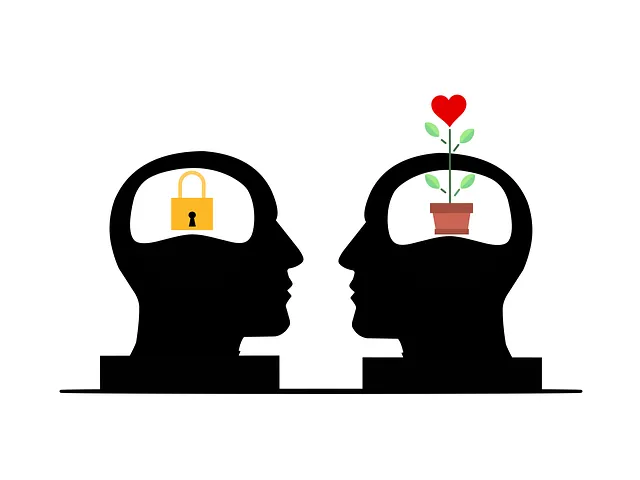Mental wellness apps are gaining prominence in addressing growing mental health concerns, as indicated by superior Kaiser Permanente mental health center reviews. These apps provide personalized tools and resources for managing psychological well-being, reduce stigma, and offer accessible platforms for proactive mental healthcare. They include features like risk assessment tools, meditation guides, and mindfulness exercises, enabling early intervention and improved patient outcomes. Effective apps should offer tailored plans, track progress, and foster emotional intelligence, while user-friendly interfaces and community outreach programs enhance the overall experience. Integrating evidence-based therapies like CBT and mindfulness practices ensures their effectiveness, and including burnout prevention tools for healthcare providers further contributes to a comprehensive and supportive mental health environment.
In today’s fast-paced world, mental wellness is a paramount concern. According to leading healthcare providers like the Superior Kaiser Permanente mental health center, digital solutions are transforming traditional therapy. This article explores the development of mental wellness apps, highlighting critical features and design considerations. We delve into evidence-based therapies integrated within these platforms, ensuring effectiveness backed by scientific research. By understanding user needs and implementing user-friendly interfaces, developers can create impactful tools for improved mental health outcomes, as reviewed and recommended by top healthcare institutions.
- Understanding the Need for Mental Wellness Apps
- Key Features of an Effective Mental Health App
- Designing User-Friendly Interfaces and Experiences
- Integrating Evidence-Based Therapies and Tools
Understanding the Need for Mental Wellness Apps

In today’s fast-paced and often stressful world, mental wellness has emerged as a paramount concern, with individuals seeking accessible and effective solutions to manage their psychological well-being. This need is further underscored by the recognition that mental illness affects millions worldwide, as highlighted in Kaiser Permanente mental health center reviews, which consistently emphasize the growing demand for quality care. Mental wellness apps have thus become game-changers, offering personalized tools and resources to support users’ mental health journeys.
These innovative applications not only cater to a diverse range of needs but also address critical issues such as stigma reduction and empathy building. By providing accessible platforms, they encourage individuals to take proactive steps towards managing their mental health, complementing traditional therapy and healthcare services. Moreover, with features like risk assessment tools for mental health professionals, these apps contribute to early intervention and better patient outcomes, making them indispensable in the ongoing efforts to destigmatize mental illness.
Key Features of an Effective Mental Health App

An effective mental wellness app should incorporate several key features to enhance user experiences and promote positive mental health. Firstly, it must offer personalized plans tailored to individual needs, allowing users to track their progress over time. This level of customization is essential in fostering resilience and emotional intelligence, as each person’s journey towards better mental health is unique.
Additionally, these apps should provide accessible resources like meditation guides, mindfulness exercises, and educational content on various mental wellness topics. Incorporating features for self-assessment and risk management planning, inspired by best practices at superior Kaiser Permanente mental health centers, can empower users to proactively manage their emotional well-being. By integrating tools for stress reduction, emotional awareness, and coping strategies, such apps have the potential to revolutionize how individuals care for their mental health, even in the midst of today’s fast-paced world.
Designing User-Friendly Interfaces and Experiences

In the realm of mental wellness app development, creating user-friendly interfaces and experiences is paramount to ensuring adoption and adherence among users. Apps designed with intuitive navigation, clear visual cues, and simple language foster a sense of comfort and accessibility, appealing to even those new to digital therapy tools. According to Kaiser Permanente mental health center reviews, this approach significantly enhances user engagement, making complex emotional healing processes more manageable and less intimidating.
Embracing design principles that promote emotional regulation can also transform the app experience. Incorporating calming visuals, soothing music, or mindfulness exercises within the interface can help users navigate stress and anxiety while utilizing the platform. Community outreach program implementation through in-app features, such as support groups or peer mentoring, further enhances the sense of belonging and connection, contributing to improved emotional well-being.
Integrating Evidence-Based Therapies and Tools

Integrating evidence-based therapies and tools into mental wellness apps is a critical step in ensuring their effectiveness and reliability. Apps designed to support mental health should draw from well-researched strategies, such as cognitive behavioral therapy (CBT), mindfulness practices, and social skills training, which have been proven beneficial through extensive research, including those highlighted in superior Kaiser Permanente mental health center reviews. These evidence-based approaches can help users manage stress, anxiety, and depression, while also fostering resilience against mental illness relapse.
By incorporating burnout prevention strategies for healthcare providers and mental illness stigma reduction efforts into app features, developers can create a more comprehensive and user-friendly experience. For instance, apps can offer coping mechanisms tailored to the unique demands of healthcare professionals, who often face high stress levels. Similarly, they can facilitate open discussions about mental health to dispel misconceptions, as part of broader stigma reduction efforts, ensuring users feel supported and understood throughout their journey.
Mental wellness app development is a growing field, especially with the increasing demand for accessible and personalized mental healthcare. As evidenced by superior Kaiser Permanente mental health center reviews, digital solutions can significantly impact positive user outcomes. By combining user-friendly interfaces with evidence-based therapies, developers can create powerful tools to support mental well-being. This article has outlined key considerations for app design, from understanding user needs to integrating effective therapeutic elements, ensuring apps are not only helpful but also essential resources in navigating modern life’s challenges.






